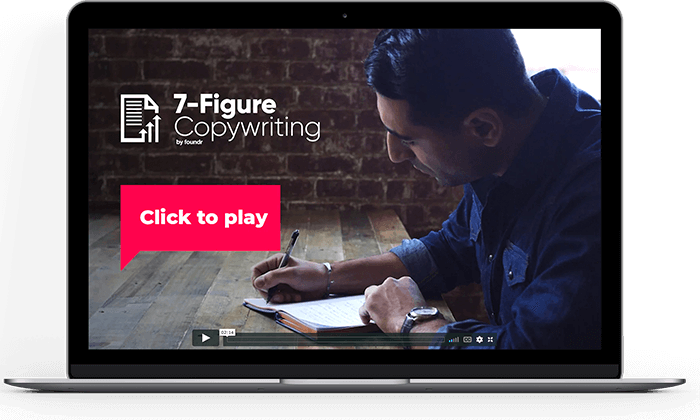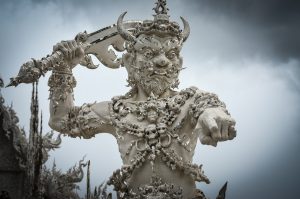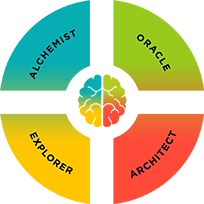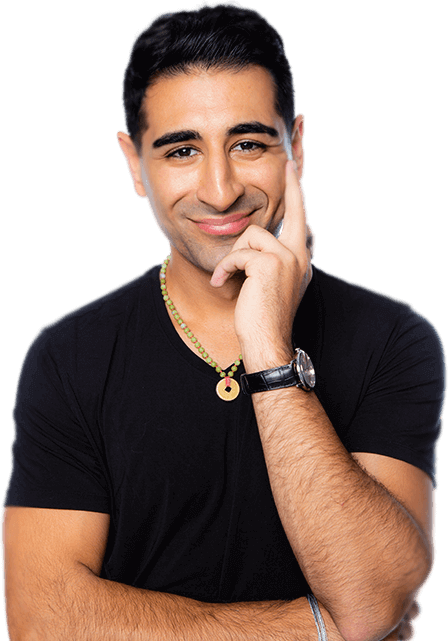Total Reading Time: 9 minutes.
The theme of my year was intentional solitude. During this time the goal was to focus on personal growth and learning how to flex my creative muscles. Ironically, I also learned a major lesson: the fastest and most effective way to learn a new skill or concept is from other expert people.
So yes, this does mean I’ll be leaving the dungeon more often now. But before I do that, I took some time to put together a list of the most eye-opening lessons I learned during this year of discovery and intentional solitude.
One of the main reasons this blog exists is to share these personal lessons and stories with you.
My hope is that it will enhance your journey and enable the freedom lifestyle you deserve.
Below are my top lessons from a year of solitude.
1. Your life is a miracle—maximize your experience.
Live in a state of awe. Shift from judgement to being fascinated by other human beings. Open your eyes in the morning and be surprised you even have eyes to begin with. Living in this perpetual state of awe has incredibly positive effects on daily life.
The enthusiasm you live with will push you to maximize your experience, and is also quite infectious to others.
2. Meditation is the pillar to fulfillment, happiness, and success.
Contrary to popular belief, meditation is not a way to escape, nor is it only for hippies or yogi’s. It is a simple, personal practice that teaches how to maintain laser concentration, and exposes a natural state of life.
If you study meditation you’ll find that most of what you’ve seen or heard is false, and it is due to stereotypes and stigmas that have spread through popular culture. It’s easy to learn, you can start with my short video.
3. Every destination and experience is what you make of it.
Most places are neither as dangerous or amazing as they sound. When you travel, everyone wants to offer opinions on what’s good, what’s not, and what to do.
Even the ugliest places on the planet can turn out to be amazing experiences—it’s all about what you make of it and the words you use (see #23 below).
My suggestion: Let go. Plan less, and go with the flow more.
4. Solitude is food for creativity.
The major theme of my year was intentional solitude. After studying so many of the great artists, writers, and thinkers of our time this is the common thread I found.
I had to experience it for myself, and I’m incredibly glad I did. I never thought of myself as a creative person, but solitude can be inspiring.
Also, learning how to be alone and enjoy your own company is important. You’ll learn a lot about who you really are and want to become.
5. Relationships with like-minded people are priceless.
I could write an entire book on this topic, and maybe I will one day. We’ve all heard it before, “we’re the average of the five people we spend the most time with”.
This year I proactively spent time with different people, and the results were:
- A feedback loop that enabled a better version of myself
- A stronger sense of belonging
- A grand ol’ adventurous time
But the most powerful result will trickle into your life for years afterward, and you won’t even realize it. These relationships with fulfilled rockstars are priceless.
6. There is nothing more valuable than giving to others.
Whatever you know, share it. Rather than holding onto all those million dollar ideas you’ll never do anything with, give them to someone who will.
If you have a skill, teach it to others. Whatever you have, give it. It will “pay off” for the rest of your life, and you’ll feel a true sense of fulfillment when you start receiving the appreciation.
This blog is an example of that. I share stories and lessons that give readers the skills and knowledge to create their own freedom lifestyle. The emails and thanks I receive are priceless.
7. Your plan may not be the best one—be open to “off-the-radar” possibilities.
This was a key lesson. Once you know what you want, why you want it, and how you’re going to get there, you may forget to pick your head up and look around sometimes.
It’s very important to be accepting of alternative (better) plans and opportunities that come your way. Do you still get to a similar destination? Good, go with it.
Off-the-radar plans may come to you when you least expect them. Don’t let your fate be like the parable of the drowning man who declared “God will save me” to every helping hand.
8. Solopreneurship doesn’t have to be lonely, nor does it have to be hard.
This is a common misconception. Yes, the word solo does mean “one”, but in reality solopreneurship is just a unique long-term strategy to self-employment. I define it as a form of entrepreneurship which allows the lifestyle to takes precedence, not the business.
Build a network of solopreneur friends. Go to events in your industry. Create a mastermind group. Get out of the dungeon.
9. You’re either a victim of the world or the creator of your experience.
Life isn’t black and white, most things are nuanced. But generally you’ll notice people fall into one of these two archetypes. Either life happens to them, or for them.
Be the creator. If that word makes you uncomfortable, pick another one, but realize this truth…
You are the director, not the actor.
10. Relaxation is as important to your success as hard work.
Most of us over-achieving freedom lifestyle types feel guilty for taking breaks. You can divide your work-life into two time buckets or categories:
a) Focus on high-revenue, high-lifetime value activities.
b) Focus on complete rest, rejuvenation, and relaxation.
Once you realize that your effectiveness and output will actually increase by giving yourself deep rest, you’ll become addicted. I learned this directly from Eben Pagan (someone I deeply admire as a mentor and person) and I intend to incorporate this for the rest of my life.
11. Time constraints will massively boost your productivity.
Along with some good rest and relaxation, limiting your work time with constraints will also increase your work quality and output. Give yourself pre-determined chunks of time to work on projects, and you’ll be more focused and effective.
Open-ended doesn’t work well. This is a proven, counter-intuitive concept used by many great leaders.
12. A morning and evening ritual is the foundation to an effective workday and grounded life.
The way you start and end your day is critical. If you haven’t yet created your own morning ritual, do it now. Mine is always changing, but it gets done every day.
Identify what the highest leverage thing is in your life, the domino that makes everything else fall into place. Structure your ritual around making sure this one thing absolutely happens.
For me it’s waking up at a certain time every day and meditating before I start working. For some it’s exercise, and for others it’s journaling—you get the idea.
13. Focus on your growth to stop living for others.
It can be difficult to completely let go of what others think is best for you. From a young age we’re conditioned and rewarded to follow instructions and quietly mold into the herd.
But we’re non-conformists, and we’re not here to perpetuate status quo. Through personal growth and mastery you’ll eventually let go of these concerns, and the journey becomes so much easier.
14. A financial goal without a proper plan for getting there will get you nowhere.
I don’t believe in just manifesting money through thought, this is a big fallacy.
What if the brilliant idea never hits? What if all you’re doing is dreaming and visualizing?
A financial goal needs a proper plan, backed by massive action. This plan needs to be incredibly detailed. You should be able to back into the numbers. Start somewhere, even if the plan isn’t great, and be open to off-the-radar-ideas (see #7 above).
15. If you treat yourself like a King or Queen others will automatically do the same.
How you carry yourself changes the way people see you. How do you talk to yourself? How do you see yourself? I guarantee that this is how others see and talk to you too.
Learn to “love yourself like your life depends on it”.
16. Your nutrition, sleep, and movement directly affect the way you feel and operate.
I underestimated how important these were for a long time, but this is the year I truly learned how directly it affects mood, performance, and vitality.
a) Eat healthy, whole foods. Don’t make it hard. Listen to your body. I drink insane amounts of water, juice vegetables daily, and eat many small, healthy meals and snacks throughout the day.
b) Wake up at the same time every day, after a week or two this will automatically regulate your sleeping pattern to what’s best for you. That’s it. Read this to learn how to become an early riser.
c) Remember to move. Get a standing desk, or work in chunks by setting a timer and taking breaks. Stretch, exercise, play a sport, take the stairs—just move!
If you’re feeling off, you can almost always attribute it to a lack of hydration, nutrition, sleep, or exercise.
17. It is easy to experience everything you’ve ever wanted—don’t be your own obstacle.
We tend to overcomplicate things. We also tend to be our own worst enemy. You may have mental blocks around what’s easy, or what you can and can’t do.
You’ll notice that the most adventurous, fulfilled people don’t have these BS rules, they just go for it. I’ve learned to let life flow more easily, and found that it only leads to more of what I already want.
18. A blog is not a business, it is a media property or platform.
Most blogs die because:
a) The owner gets frustrated or tired and stops publishing.
b) They were created with the wrong intention.
A blog is either a media property for your business, or a central platform for your brand. Look at it this way and approach it as a business, not a hobby, and it will change everything.
19. Don’t fall into the trap of perpetual over-complication.
We’re surrounded by abundant amounts of information, and everyone and their mother has an opinion. Know your outcome clearly, define your bigger vision, and use that as a filter for what you’ll spend time on.
I shifted from wanting to know everything in a topic, to focusing on the best material. Consume information from the best resources and take baby steps every day, you’ll get there.
20. Be careful not to fall too far down the wormhole.
There is a dark side to everything, even positive environments like personal development, religion, or spirituality. The slippery slope can get quite greasy if you lose self-awareness.
It’s okay to be a big fan of something, but it’s more valuable to maintain a true sense of self while also experiencing new and unique subjects and communities.
I’ve found that, ironically, most people fall into the same “herding” trap they were trying to escape, just on a smaller scale.
21. It is possible to be in total control of your emotions.
Your environment doesn’t have to predict your mood or conditions. What a person says or how they act does not have to affect you, nor should it even cause a reaction.
I learned that we are truly in charge of our emotions, and it’s a victim mentality to give that control up to someone or something else. The same applies for difficult situations, like traffic or airports during the holidays.
You can choose to slow down, take a deep breath, and react differently. Change the pattern and you change your experience.
22. It is never too late or too hard to change a relationship or situation. Never.
I experienced miracles in this department. I believe it has something to do with #21 above, but the key lesson was this: it’s never too late.
Whether it be a dream you’ve given up on, or a family member you’ve lost touch with, it’s never too late. Trust me.
23. The words you use create your experience.
We all have a story. The words we use give a lot of meaning to this story, and it’s the meaning that creates our experience.
Here’s an example: Relationships get more exciting as time goes by. They are easy and fun. They continuously grow and get better with each passing day.
This is what I tell myself daily, and that is the reality I experience. Imagine if I believed or said that relationships get old and boring after a few years, or that they’re hard work.
Be mindful of the words you use to describe your experience, you may be surprised to find out what an impact they have.
24. Wealthy people don’t focus on cash.
After years of studying this topic I’ve only recently discovered the secret: having a big bank account of cash is not the path to wealth. And surprisingly, it is actually more difficult to keep wealth than it is to accumulate it.
Wealth is the accumulation of assets, ones that ideally trickle off cash flow (interest) which you can then live off.
Once you know the wealth formula, you can begin focusing your efforts in the right direction and achieve financial freedom for your freedom lifestyle.
- –
I hope these lessons were as eye-opening for you as they were for me. Which of these did you enjoy most? What lessons have you learned lately?
Photo credit: Isolation—CC license






